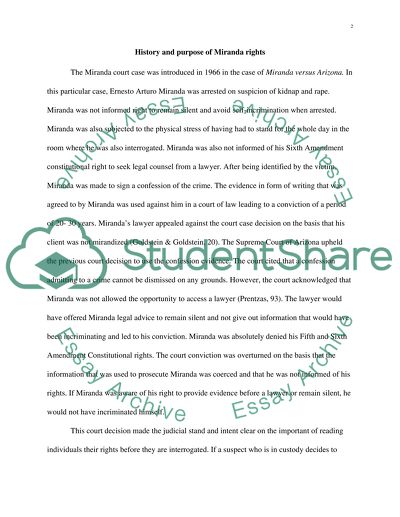Cite this document
(“The Miranda Rights Term Paper Example | Topics and Well Written Essays - 2250 words”, n.d.)
Retrieved from https://studentshare.org/law/1462882-the-miranda-rights
Retrieved from https://studentshare.org/law/1462882-the-miranda-rights
(The Miranda Rights Term Paper Example | Topics and Well Written Essays - 2250 Words)
https://studentshare.org/law/1462882-the-miranda-rights.
https://studentshare.org/law/1462882-the-miranda-rights.
“The Miranda Rights Term Paper Example | Topics and Well Written Essays - 2250 Words”, n.d. https://studentshare.org/law/1462882-the-miranda-rights.


